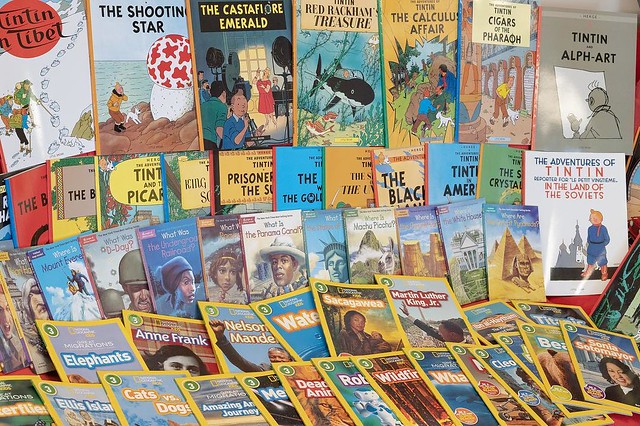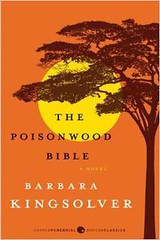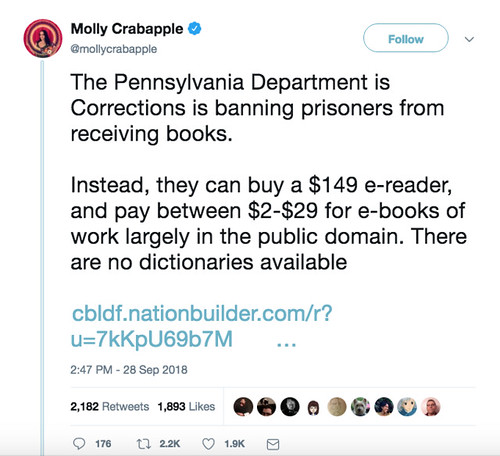You Can’t Read That! is a periodic post featuring banned book reviews and news.

YCRT! Banned Book News
Local pastors petitioned to have LGBTQ-themed books removed from a Banned Books Week display at the public library in Rumford, Maine. The library, backed by patrons and the Comic Book Legal Defense Fund, stood its ground.
Per the American Library Association, five of the top ten banned books in 2017 had LGBTQ content, a fact borne out in this short ALA video:
It’s another year, so it must be time for the annual obligatory op-ed declaring Banned Books Week a hoax. Yawn.
Retailer Target is removing words like “Nazi” and “queer” from descriptions of books for sale at its website, “ … to ensure a positive shopping experience.”
Censorship by omission: In West Virginia, the Morgan County public library announced it would not carry the new Bob Woodward book, “Fear: Trump in the White House.” “We have other Trump books,” the library’s director said, before the library board, alerted to her announcment by media reports, stepped in to reverse the decision.
The director of guidance at Burlington High School, Vermont, was being investigated for unprofessional conduct. Student journalists filed a public records request and published an article about the investigation on the school newspaper’s website. The next day the principal ordered them to take the article down, in apparent violation of the state’s “New Voices” law protecting student journalists’ First Amendment rights. Good news: the students prevailed.
Authors speak out on being banned.
Howard Zinn’s “A People’s History of the United States” has gone mainstream? Tell that to Heartland America, Slate Magazine!
Under the new European Union’s Copyright Directive, not only can’t users upload copyrighted material to social media, copyrighted material already on those platforms must be taken down. Once platforms like Google and Facebook install filters to block and remove copyrighted material, EU law may affect social media users world-wide.
The link in the following tweet, posted 9/28/18, is already dead, which leads me to believe Pennsylvania prison policy on books is still in flux. Dated 10/4/18, this appears to be current policy, bad enough but not as bad it initially appeared:
There is no censorship more odious than censorship based on stake taint.
If you think censorship based on stake taint is bad, wait’ll you read about censorship and book banning in Kuwait, where mermaids have to wear the hijab.
YCRT! Banned Book Review
 The Poisonwood Bible
The Poisonwood Bible
by Barbara Kingsolver
![]()
Synopsis (from Goodreads): “‘The Poisonwood Bible’ is a story told by the wife and four daughters of Nathan Price, a fierce, evangelical Baptist who takes his family and mission to the Belgian Congo in 1959. They carry with them everything they believe they will need from home, but soon find that all of it — from garden seeds to Scripture — is calamitously transformed on African soil. What follows is a suspenseful epic of one family’s tragic undoing and remarkable reconstruction over the course of three decades in postcolonial Africa.”
“If I were to write a nonfiction book about the brief blossoming and destruction of the independence of the Congo, and what the C.I.A. had to do with it, then probably all 85 people who are interested in the subject would read it. Instead I can write a novel that’s ostensibly about family and culture and an exotic locale. And it’s entertaining, I hope.”
— Barbara Kingsolver
This was a book club selection, not one I would have picked up on my own. I had heard of Barbara Kingsolver but had never read any of her stuff. I’ll go right to my reaction: after a short opening chapter in the voice of Orleanna, the mother, each of the Price family’s four daughters began to describe their experiences in the Congo, and I was utterly hooked.
The Price women came alive and I loved them all, even Rachel the Termite, the shallow one. Each has her own distinctive voice and style and way of looking at her family and the world. I didn’t miss hearing from the father at all … one sees quite enough of him through his wife and daughters’ eyes, enough to last a lifetime. I grew up Southern Baptist, thank you, and know the type well. Oh, and by the way, I am the same age as the twins, Leah and Adah, and well remember heavy news coverage of America’s interest in the newly-independent Congo in the early 1960s, including our government’s opposition to the presidency of Patrice Lumumba and the coup that resulted in the Congo’s decades-long nightmare under Mobutu.
It struck me … as I read about Nathan Price’s dogmatic single-mindedness and the physical and psychological punishment he inflicted on his wife and daughters; about the contrast between his empty, irrelevant religion and that of the Congolese villagers; about the Eisenhower/CIA-engineered assassination of Lumumba and the installation of the corrupt dictator Mobutu; even more so about Leah’s later life with Anatole, her black Congolese revolutionary husband … that “The Poisonwood Bible” had surely been the target of book banning attempts in the USA, if not in parts of Africa as well.
A little research uncovered two documented instances: the novel was banned in Port Washington NY schools in 2001; in 2010 it was challenged by New Hampshire parents who objected to its inclusion on a school reading list, citing sexually explicit scenes.
“The Poisonwood Bible” does not appear on the American Library Association’s Top 100 Banned Book list, and the only references to it being banned and challenged I can find online are the secondary ones linked above. Still, given that the ALA itself says most school book bans and challenges go unreported in the media, and are thus invisible to the ALA, I have to believe “The Poisonwood Bible” has been the target of other, unreported, attempts to keep schoolchildren and others from reading it.
When possible, I research and link to contemporaneous local news coverage of book bans and challenges. Why? Because local news reports usually include interviews with those who sought to ban the books in the first place, and that’s where you find out what their real beef was. Unfortunately, I can’t track down contemporaneous coverage for the two incidences listed above.
Sexually explicit scenes? I doubt it. I just finished reading the book cover to cover, and I’m damned if I remember any. No, I’m willing to bet the real objections were to the novel’s less-than-flattering depictions of Christianity and good-hearted American benevolence (specifically the Eisenhower administration’s complicity in overthrowing Lumumba). Most of all, however, I think the parents who got the book banned in New York, and who challenged it in New Hampshire, were uncomfortable with the idea of Leah and Anatole’s mixed-race marriage. Can I prove it? No. Am I right? You know I am.
